Capstone
B.A., Advocacy and Social Justice
Concentration: Trauma, Culture, and Resilience
School of Human Development
2023
Introduction:
Welcome to my Advocacy and Social Justice Bachelor of Arts Capstone. As a non-traditional and older student, I began my journey at Pacific Oaks College amidst the peak of the pandemic, motivated by a singular goal: to dispel the self-limiting belief that completing my bachelor's degree was unattainable due to my age. At Pacific Oaks, I found an inclusive and nurturing community that not only helped me overcome this self-imposed barrier but also fostered a deeper sense of self-awareness and purpose. This Capstone encapsulates my experiences at Pacific Oaks College, highlighting the influential books I read, the thought-provoking research papers I authored, and the inspiring communities I collaborated with—all through the lens of justice, equity, belonging, and resilience.
Over the course of my journey at Pacific Oaks College, I have had the privilege of exploring various subjects and engaging in meaningful conversations that helped shape my understanding of advocacy and social justice. This Capstone offers a glimpse into my academic journey, highlighting the key elements that shaped my Bachelor of Arts degree in Advocacy and Social Justice.
Books that Influenced My Journey:
Throughout my time at Pacific Oaks College, several books left a profound impact on my perspective and understanding of advocacy and social justice. Here are a few notable examples:
- "Teaching Community: A Pedagogy of Hope" by bell hooks - This book explores the importance of creating inclusive, community-centered learning environments that foster hope, critical thinking, and empowerment.
- "Stamped from the Beginning" by Ibram X. Kendi - This book provides a comprehensive history of racist ideas in America, emphasizing the importance of understanding and acknowledging our past in order to create a more equitable future.
- "Community-Based Qualitative Research: Approaches for Education and the Social Sciences" by Laura Ruth Johnson - This book provides a comprehensive guide to community-based qualitative research methods, emphasizing the value of engaging with local communities to address complex social issues.
- "A People's History of the United States" by Howard Zinn - This book presents an alternative perspective on American history, focusing on the experiences and struggles of marginalized groups and highlighting the importance of understanding the past in order to advocate for a more just and equitable future.
Research Papers and Projects:
Throughout my academic journey, I had the opportunity to delve into various research topics and projects related to advocacy and social justice. Here are a few that stand out:
- "The Impact of Gentrification on Communities of Color" - This paper explored the effects of gentrification on marginalized communities, focusing on displacement, economic inequality, and loss of cultural identity.
- "Intersectionality and LGBTQ+ Rights" - This project examined the importance of intersectionality in the fight for LGBTQ+ rights, emphasizing the need to consider the unique experiences and challenges faced by individuals with multiple marginalized identities.
- "The Role of Education in Promoting Social Justice" - This research paper analyzed the ways in which education can be utilized to promote social justice and equity, highlighting the importance of inclusive curricula and culturally responsive teaching practices.
Community Engagement and Co-creation:
My experience at Pacific Oaks College was enriched by the diverse communities I engaged with and the collaborative projects we co-created. These experiences allowed me to develop my skills as an advocate for social justice, equity, and belonging:
- Volunteering at a local food insecurity nonprofit - This opportunity allowed me to witness firsthand the impact of food insecurity on marginalized communities and reinforced the importance of addressing systemic barriers to accessing healthy, affordable food.
- Participating in a mentorship program for at-risk youth - Through this program, I was able to support young people in developing their self-esteem, resilience, and educational aspirations.
- Collaborating with performance artist and an arts nonprofit - This project highlighted the importance of working collectively to address the root causes of social issues and implement creative solutions.
My academic journey at Pacific Oaks College has been transformative, both personally and professionally. The knowledge and experiences I have gained have provided me with a solid foundation to continue advocating for social justice, diversity, equity, and belonging in my future endeavors. I am grateful for the support and guidance I received from the Pacific Oaks community, which has empowered me to challenge the internal narrative that once held me back and embrace my potential as a change agent in the world.
Advocacy and Social Justice at Pacific Oaks College:
Advocacy and Social Justice examines society's overall fairness and how it divides its rewards and burdens upon groups of people. To train leaders and advocates to be the voice for underserved groups and communities, this field strives to increase equity and inclusion within society by focusing on social justice theory, research, and practice—an interdisciplinary field combining the study of human development, psychology, education, anthropology, public policy, and legal studies—grounded in the principles of social justice, respect for diversity, multiculturalism, and the uniqueness of each person.
Trauma, Culture, + Resilience
Course:
HD 459:
Exploration and Application: Fieldwork / Internship
Professor:
Dr. Terry Stone
Book:

-
Johnson,
L.R. (2017). Community-Based Qualitative Research: Approaches for Education and
the social sciences.
Course Description:
In this fieldwork / internship seminar, students apply the theories and principles learned to their work in a field setting. Students gain knowledge, acquire new skills and refine existing ones while serving the community. Students will observe, investigate and critically reflect on practices and emergent issues from their fieldwork/internship. Seminar discussions focus on discoveries from explorations, the investigation of theory for application, problem-solving, and grappling with cultural and ethical dilemmas. Each student must engage in 45 hours of service at an approved fieldwork/internship site during the semester they are enrolled in HD459.
Signature Assignment:
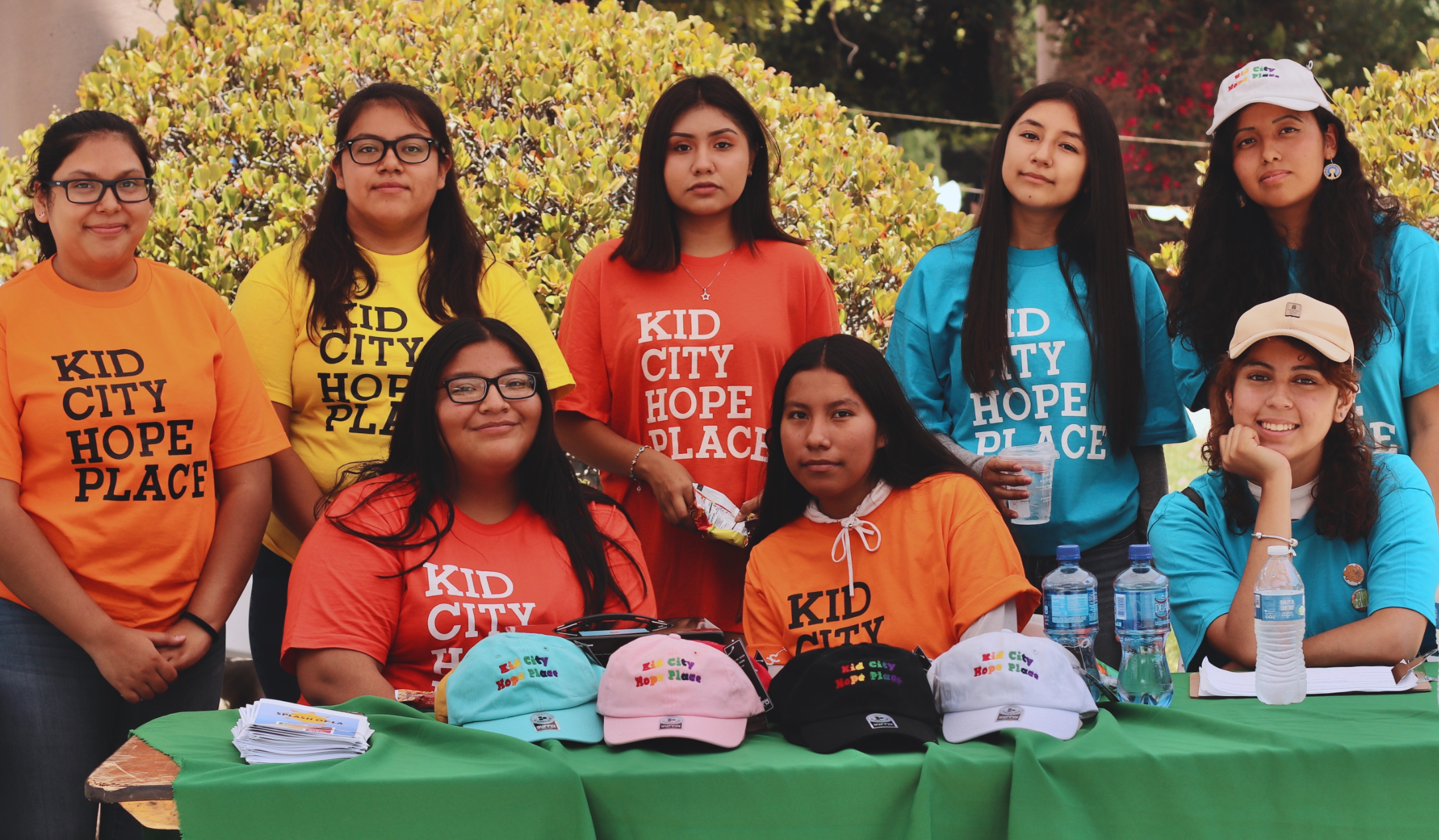
Leaders in Action: Alumni Network Development Project—Kid City Hope Place
Abstract:
This research paper explores the application of Community-Based Participatory Action Research (CBPAR) in developing an alumni network for Kid City Hope Place (KCHP), recent college graduates, and early-career professionals. The paper discusses the importance of CBPAR in centering the investigation on community needs, engaging community knowledge, and enhancing strategic action for community transformation and social change. Highlights the significance of "radical hospitality" in KCHP's culture, ethical considerations, and the role of emotionally intelligent leadership. By incorporating experiential learning interviews and data analysis, the essay demonstrates the value of CBPAR in informing the development of the alumni network and fostering an inclusive and transformative research process.
Outcomes:
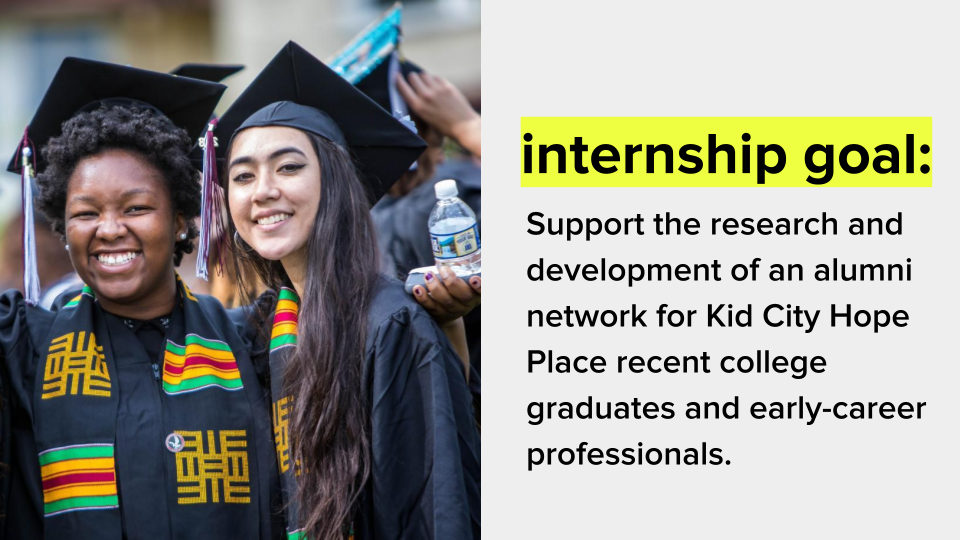
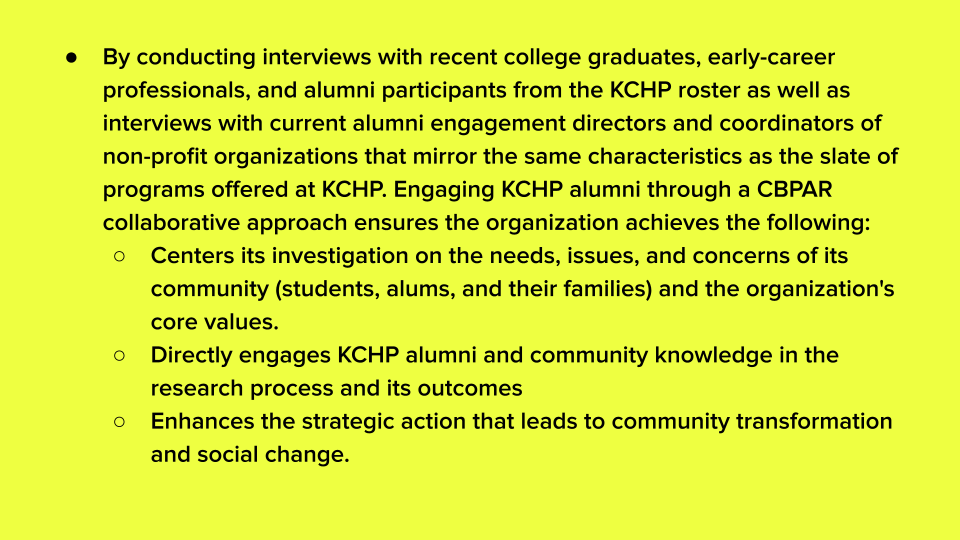
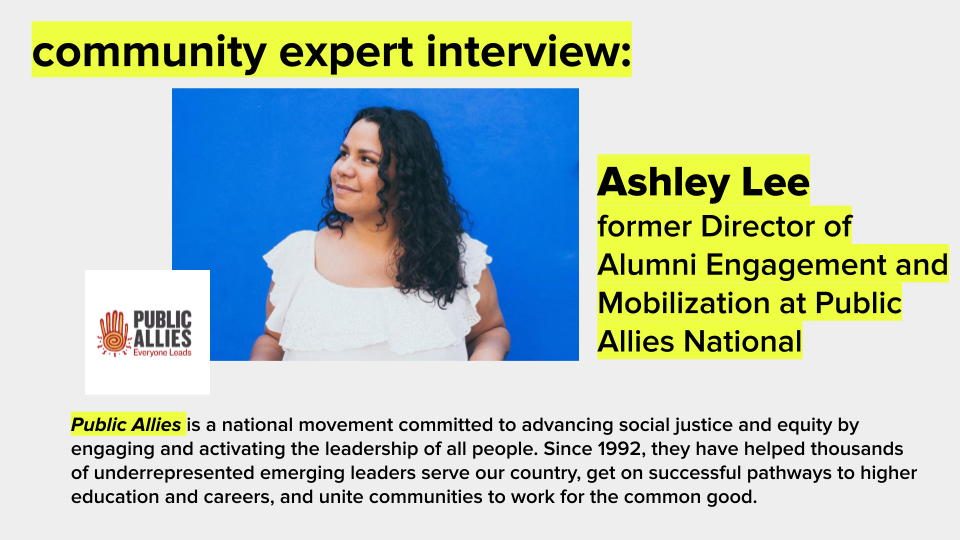
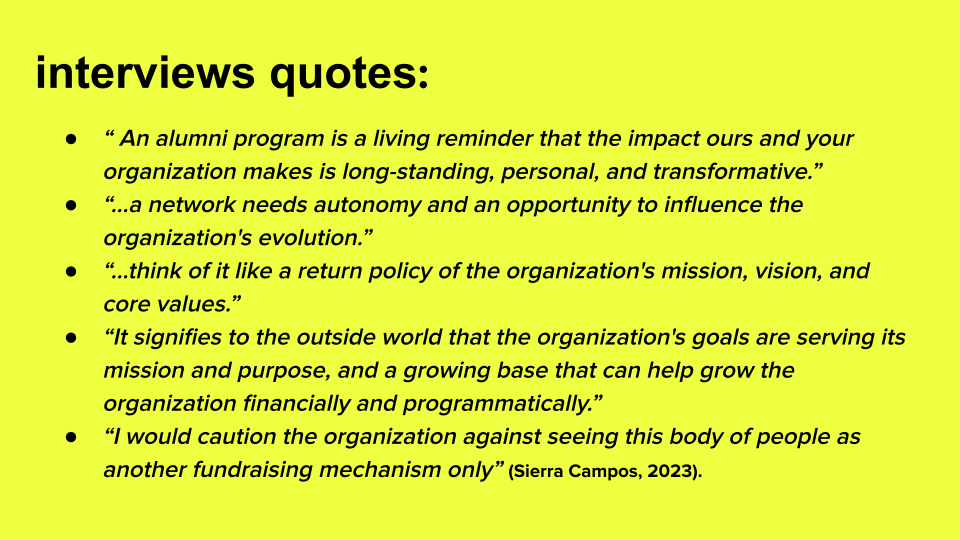
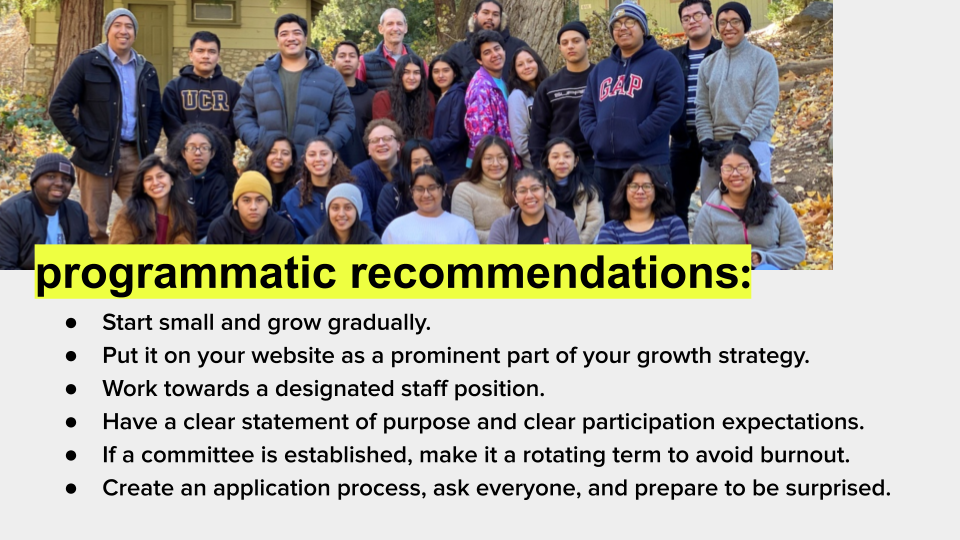
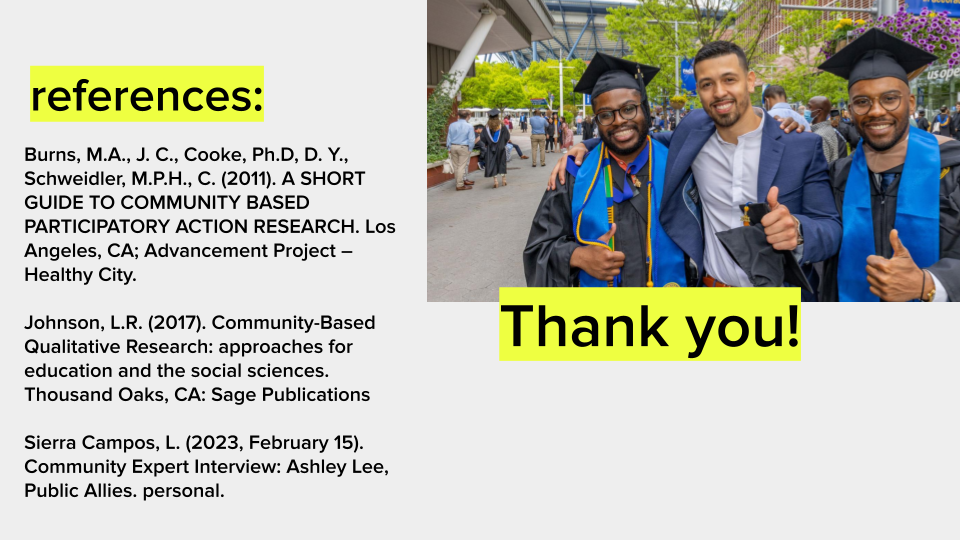
Kid City Hope Place:
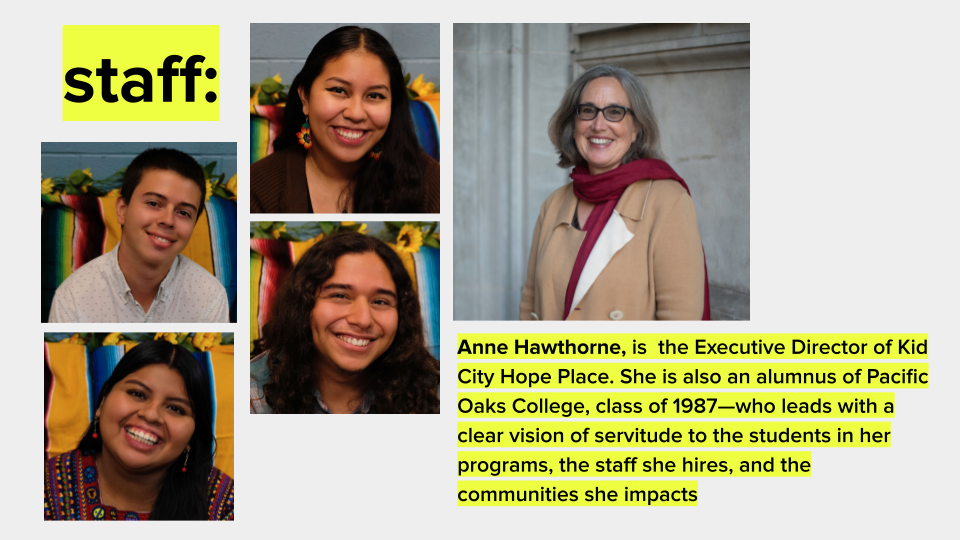
Course:
ECE 418:
Trauma, Culture, and Immigration
Professor:
Cassandra Chambers, LMFT
Books :

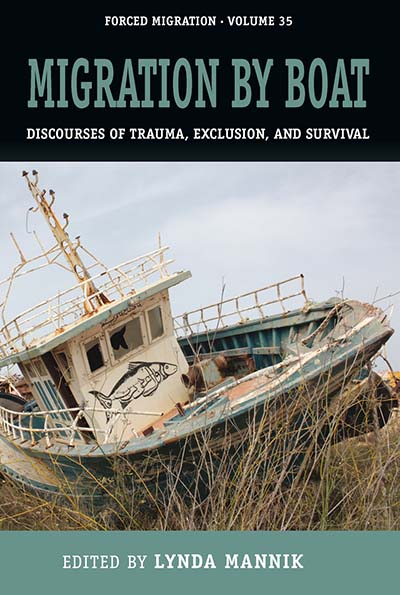
- Schouler-Ocak.M (2015).
Trauma and Migration: Cultural Factors in the Diagnosis and Treatment of Traumatised Immigrants. - Mannik.L (2018). MIGRATION BY BOAT
Discourses of Trauma, Exclusion and Survival
Course Description:
Most immigrant families function well in many domains and do not encounter child welfare systems or child protection systems. When they do, however, depending on their country of origin, generational and legal status, the reason for emigration, and immigration and resettlement experiences, it becomes incredibly challenging to untangle the range of factors that contribute to their capacity to protect and nurture their children. Topics will include acculturation, strengths and challenges faced by immigrant children, cultural identity, immigration, and refugee families, the impact of the law on young children, transgenerational immigration experiences, events during migration (e.g., parental separation, hunger), transgenerational acculturation differences, discrimination experiences, integrating cultural values
Signature Assignment:

Tackling Food Deserts in South Los Angeles—Expanding the Seed to Table Program
Abstract:
This paper explores implementing and expanding The Garden School Foundation’s Seed to Table program in South Los Angeles, a community characterized by food deserts and limited access to fresh foods. The Seed to Table program focuses on educating children on the importance of healthy eating and sustainable agriculture through garden classrooms and innovative curricula. In addition, the paper outlines a proposal to expand the program by partnering with local organizations, establishing mentorship networks, advocating for policy changes, and raising public awareness. The expansion of this program aims to create a lasting impact on children's health, academic performance, and overall well-being while contributing to the development of healthier, more resilient communities.
Course:
ECE 416:
Separation, Deployment Trauma, and Early Development
Professor:
Scott R. Van Sleeuwen, M.A., LMFT
Books:
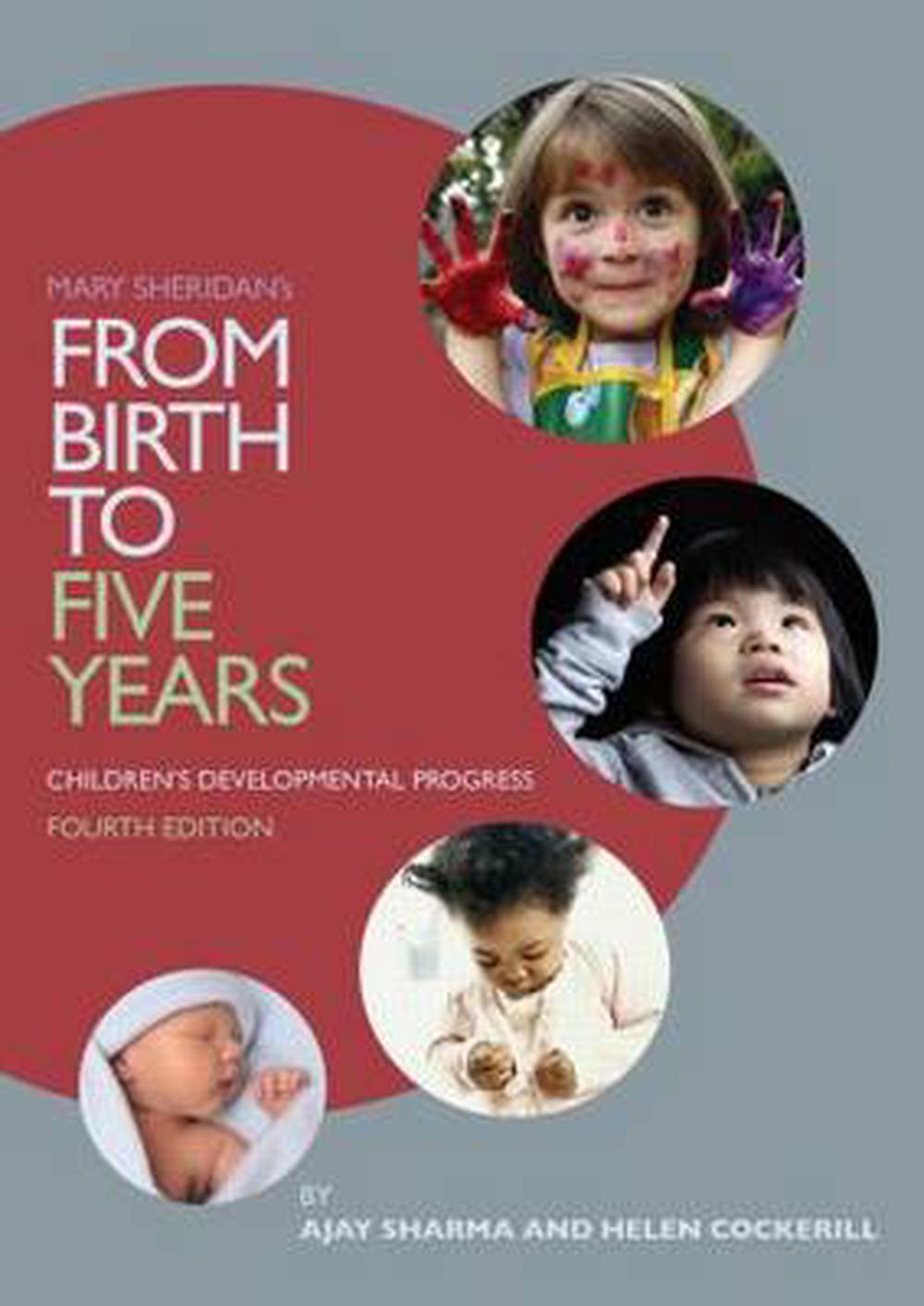

- Military Children from Birth to Five Years. Joy D. Osofsky and Lt. Colonel Molinda Chartrand
-
Trauma Faced by Children of Military Families -What Every Policymaker Should Know
Course Description:
This course will examine the different ways trauma can affect young children. Students will also understand the impact of deployment on children and will learn to understand the effects of the separation of the child from the parent and of the parent’s absence in the child’s life for a short or long term. Topics will include causes of stress for children and childhood symptoms and behaviors associated with exposure to trauma. Students will learn ways of enhancing resilience in young children. Students will learn to identify services for young children who have been exposed to trauma. They will learn about the cycle and stages of deployment, ways to speak to children about deployment and ways to recognize warning signs of trauma in young children.
Signature Assignment:
Children’s Book for Empathy and Understanding
Abstract:
This paper explores the impact of military deployment on families, focusing on the emotional challenges children face when a parent is deployed. The research highlights the significance of understanding and addressing the feelings experienced by children during this challenging period. Three age-appropriate children's books are recommended to help families navigate the complexities of deployment: "When Mommy's Job is Far Away," "Daddy Left with Mr. Army," and "Superheroes' Kids When Dad is Deployed." In addition to providing book reviews, the paper offers activities for families and teachers to facilitate communication and emotional expression. This paper uses literature and creative activities to support military families in fostering resilience and empathy in children during a parent's deployment.
Course:
HIS 200:
History of Social Justice
Professor:
Dr. Jamie Valenzuela-Mumau, Ed.D
Books:


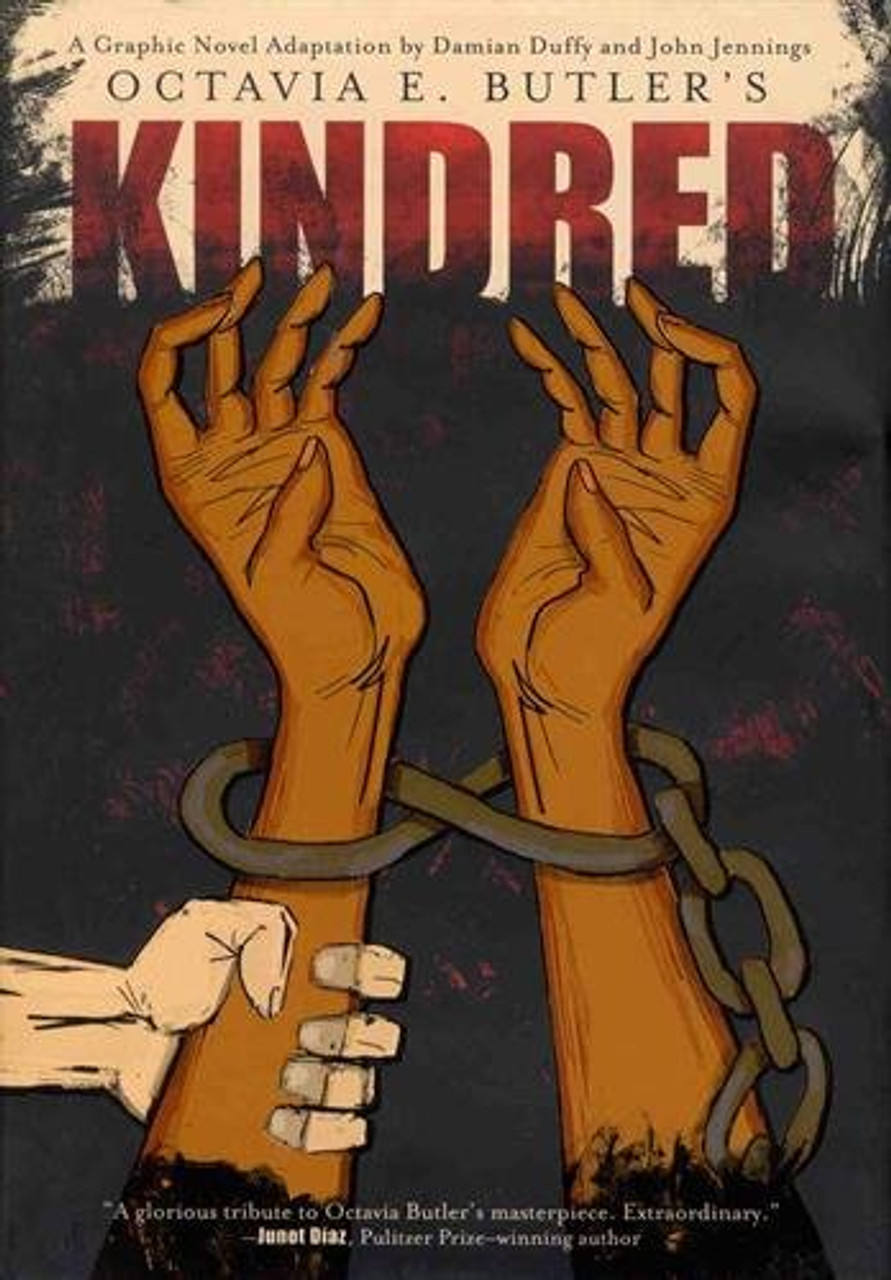

- Davis, A. (1983). Women, Race & Class.
- Duffy, D., Jennings, J., Okorafor, N., & Butler, 0. E. (2017). Kindred: A Graphic Novel Adaption.
- Wright, R. (1993). Native Son.
- Zinn, H. (2015). A People’s History of the United States.
Course Description:
This honors course will challlenge students to analize major streams of social justice thought, including historical social justice movements, theoretical problems having to do with social equality, personal freedom, access to social resources, marginalization, and stigmatization, and the ways in which communities respond to these issues.
Course Papers:
Gladys Bentley “Sashay, You Stay” and McCarthyism's “Sashay, Away.”
Abstract:
This essay highlights the life of Gladys Bentley, a forgotten LGBTQIA+ pioneer who laid the foundation for the art of drag we know today. Bentley was an African American entertainer who challenged gender and societal norms during the Harlem Renaissance and McCarthyism era by performing as a gender-bending Drag King performer. She faced many challenges due to the societal and political climate of the time, including having to renounce her lesbian identity and go back into the heterosexual closet—emphasizing the importance of acknowledging the intersectionality of oppression in the LGBTQIA+ movement's history and celebrating brave individuals like Bentley, who paved the way for future generations.
The Complex Relationship Between Eugenics, Racism, and Birth Control Policies in the United States
Abstract:
This essay explores the complex relationship between eugenics, racism, and birth control policies in the United States, focusing on how these factors have disproportionately affected women of color and economically disadvantaged women. The analysis highlights three historical instances where discriminatory policies targeted marginalized women: Margaret Sanger's "Negro Project," the forced sterilization of the Relf sisters, and the birth control pill trials conducted on Puerto Rican women. Through critically examining the Second Wave of Feminism in the 1970s, the essay underscores the importance of intersectionality in achieving gender equality and reproductive justice. Finally, by addressing the multifaceted discrimination experienced by women of color and economically disadvantaged women, the essay calls for a more inclusive and equitable approach to reproductive rights and feminism.
Un-Americanism, The KKK, and the Black Power Movement of the 1960s
Abstract:
This essay will examine the use of "Un-Americanism" by the Ku Klux Klan (KKK) and other opponents of the Black Power movement during the 1960s and 1970s. The KKK employed un-Americanism as an amorphous code adapted to changing political and social circumstances to undermine the Black Power movement's goals and efforts. By labeling Black Power activists as un-American, the KKK, conservative politicians, and law enforcement agencies justified their actions against the movement. The historical casualties of the Black Power movement due to the KKK's vision of Americanism serve as a reminder of the importance of challenging exclusionary rhetoric and promoting inclusivity and equality in American society.
Is that Seventh Item Truly Free and Just?
Abstract:
This essay discusses the efforts of the United Farm Workers (UFW) union and its leaders, Cesar Chavez and Dolores Huerta, to improve working conditions and build cross-cultural solidarity among farm laborers in the United States. In the 1960s, the UFW supported the efforts of the Cannery Workers and Farm Laborers' Union (CWFLU), which represented many Filipino cannery workers. The UFW saw the struggles of Filipino workers as interconnected with those of Mexican-American and other farm laborers and recognized the importance of solidarity across different ethnic groups. In 1966, the UFW signed a contract with Del Monte that improved wages and working conditions for thousands of workers, including many Filipinos. Dolores Huerta and Cesar Chavez used their connections and influence to advocate for political change that would benefit all farm laborers, including lobbying for the Agricultural Labor Relations Act in California in 1975, granting farm workers the right to collective bargaining and other labor protections. In addition, the UFW has continued to advocate for stronger laws and regulations to protect farm workers, including the Fair Labor Standards Act (FLSA) Child Labor Rules Advisor, which raised the minimum age for dangerous agricultural work from sixteen to eighteen and provided greater protections for young workers.
The essay also highlights the ongoing challenges of young and immigrant farm workers, including exclusion from overtime pay and other fundamental labor rights. It concludes by suggesting that consumers can support fair treatment of farm workers by advocating for fair trade and organic farming practices and raising awareness about their challenges.
Bigger Thomas is Guilty Beyond a Reasonable Doubt, or Is He?
Abstract:
"Native Son" by Richard Wright is a novel that explores poverty and racial and social justice themes through the story of 20-year-old Bigger Thomas, a young Black man living in poverty in Chicago during the 1930s. The legal definition of proof beyond a reasonable doubt, which requires the prosecution to prove guilt beyond a reasonable doubt, has remained unchanged since its development in the U.S. in the 1900s. However, its application may have varied in practice, particularly during the 1930s when the U.S. Supreme Court struggled to balance citizens' rights against the state's power. Through Bigger's story, Wright illustrates the impact of systemic racism and poverty on the lives of young Black men and highlights the importance of the principle of proof beyond a reasonable doubt in ensuring a fair and just legal system for all citizens, regardless of race.
Slavery Reimagined: Kindred, Science Fiction, and Octavia E. Butler
Abstract:
Through the lens of Science Fiction, Octavia E. Butler’s Kindred weaves the shared and traumatic experiences hidden in the DNA of present-day Black Americans, revealing the repressed trauma, collective erasure of facts, and numerous attempts to forget our nation’s complex history of a time when wealthy white people owned black people purchased through foreign (European) traffickers.
Course:
ASJ 390:
Social Media, Technology, and Social Change
Professor:
Brian Biery, MA
Books:

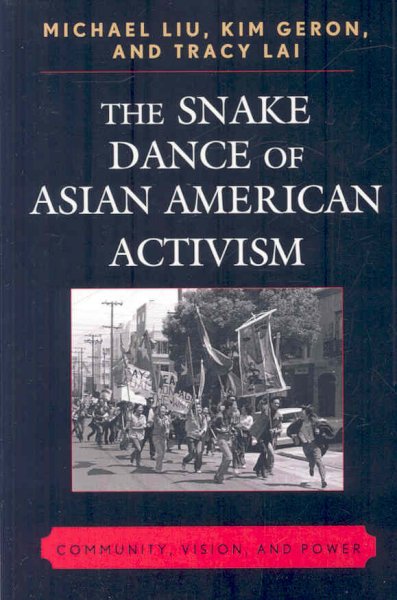
- Russell-Brown,
K. The Color of Crime: Racial Hoaxes, White Fear, Black Protectionism, Police Harassment,
and Other Macroaggressions
- Liu, M. and Geron, K. The Snake Dance: Asian American Activism: Community, Vision and Power.
Course Description:
Harnessing the Power of Technology and Social Media for Social Impact and Change analyzes the methods and techniques of media, modern technology, and Social Network Site (SNS) engagement to impact social change movements. Students evaluate communication tools used to fight injustice and maintain oppressive systems to generate a multi-media protocol for social impact and change. Students will examine the characteristics and utilization of varied media modalities including, but not limited to, Social Media network Sites, Streaming Media, Music, and Television to assess their collective impact on organizing, mobilizing, and effecting change or maintaining an existing system.
Signature Assignment:
Abstract:
Progressive faith communities have an essential role in addressing racial injustice and fostering collective healing through faith-based anti-racist adult education. The Social Media Community Engagement Campaign (SMCEC) for the virtual Jubilee III: Anti-racism training demonstrates the potential of digital platforms in mobilizing participation in transformative learning experiences. By promoting honest dialogue, understanding, and reflection, these workshops inspire participants to recognize their privileges and work towards dismantling systemic racism. The intersection of faith, virtual communities, and adult education provides a dynamic environment for learning to be an antiracist, ultimately contributing to a more inclusive and equitable society.
Data:
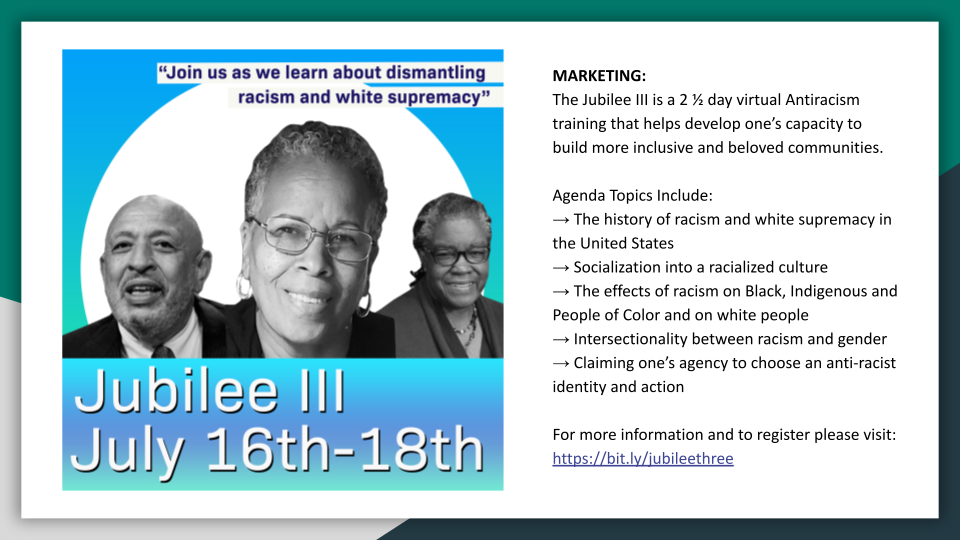
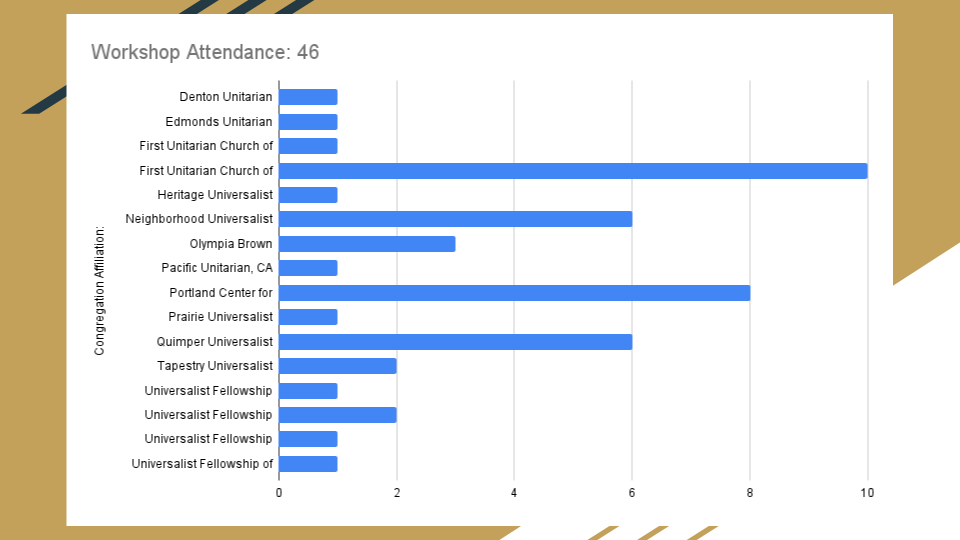

Course:
HD 364:
Community
as a Context for Development
Professor:
Teaira Honor, MA
Books:
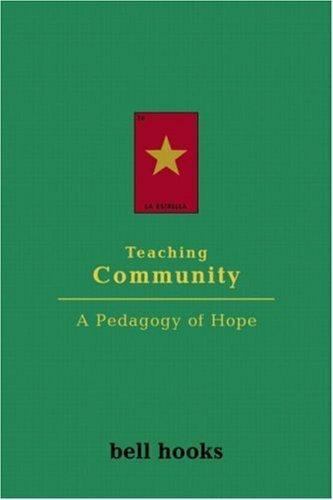
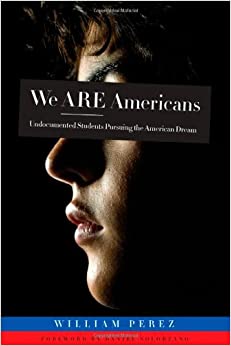
- Gonzalez, M., Moll, L., & Amanti, C. (2005) Funds of knowledge: Theorizing practices in
households, communities, and classrooms.
- Hooks, B. (2003). Teaching community: A pedagogy of hope.
- Perez, W. & Solorzano (2009). We ARE americans: Undocumented students pursuing the american dream.
Course Description:
The social dynamics that we experience in community in our life influence our growth, identity, and our worldview. We all develop as unique individuals in the context of complex communities. We experience communities in different ways through different institutions—i.e., home, family, classroom, neighborhood, third spaces, etc. This class focuses on the theoretical and practical aspects of building, reflecting and including “community” in our learning spaces throughout our life. Students will be expected to create strategies which use community to enhance learning and build a sense of belonging. This class will explore community building as an avenue to examine and promote cultural competence and social equity. We will create a learning community as we explore other communities.
Signature Assignment:
Community Alliance Project: H.E.R (Hearing Everyone's Resilience), Truth-Telling, and
Arts for Social Justice
Abstract:
The H.E.R. (Hearing Everyone's Resilience) Project is an initiative by Neighborhood Unitarian Universalist Church in Pasadena, California, to confront its past, address its present, and work towards a future rooted in truth, reconciliation, and transformation. This interdisciplinary project involves collaborations with community-based organizations, acclaimed artists, and funding partners to engage the congregation in a truth and reconciliation process, focusing on addressing historical connections to eugenics and centering marginalized voices. Through site-sensitive performances, installations, workshops, and musical explorations, the project aims to provide a model of restorative and transformative justice for other spiritual communities grappling with their own histories and seeking a more just, equitable, and inclusive future.
Community Invitation:
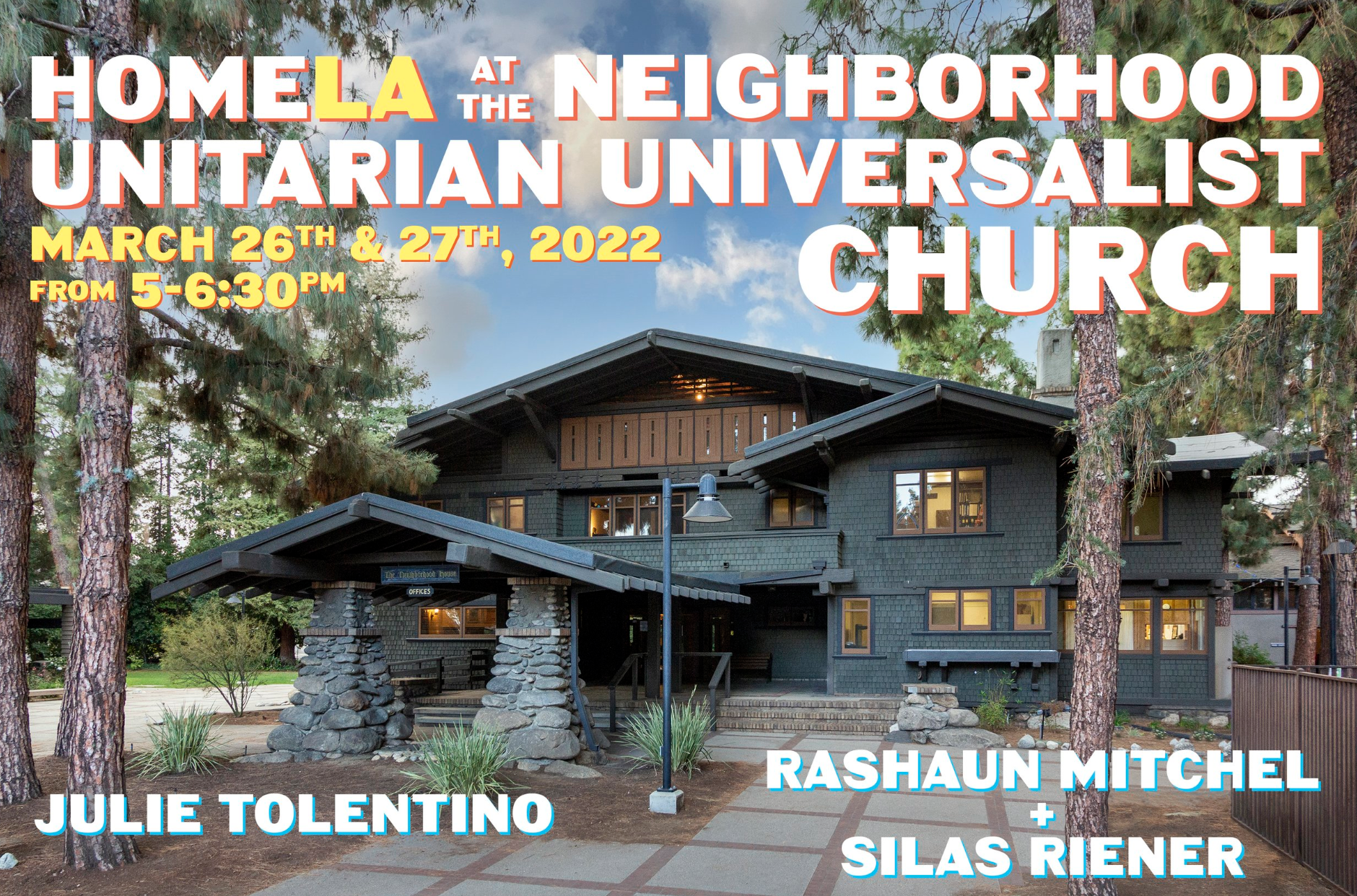
Event Photos:
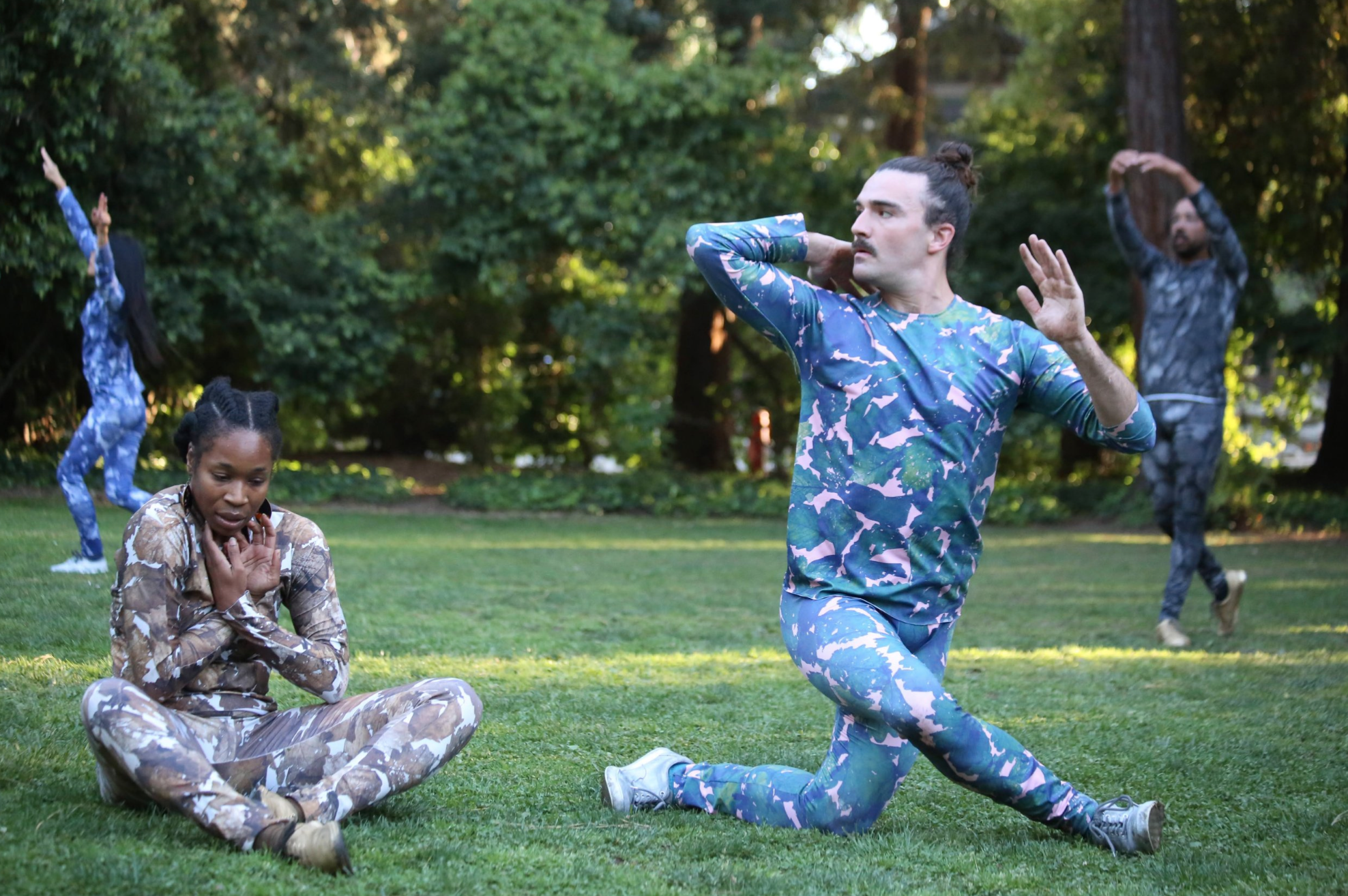
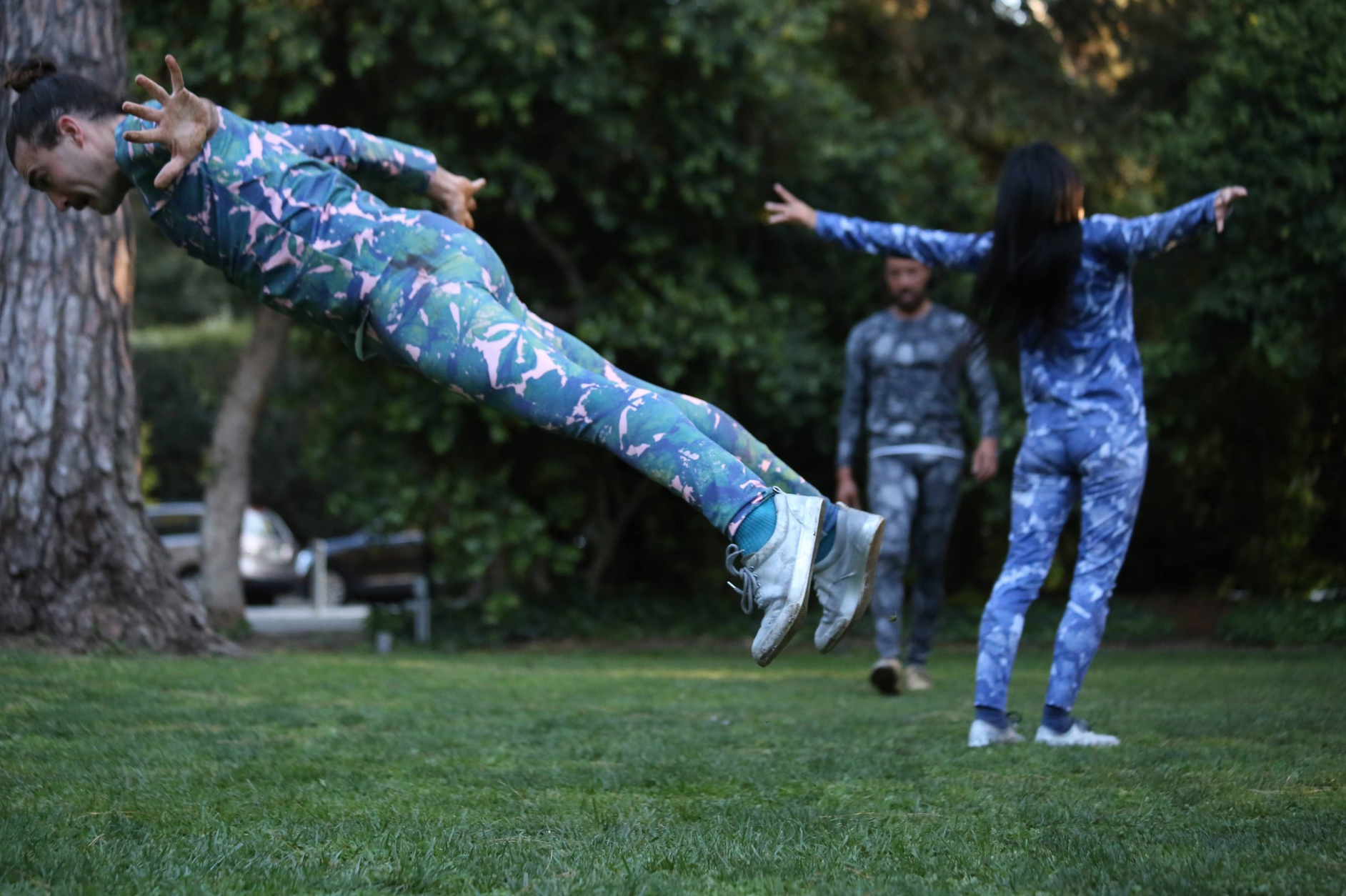
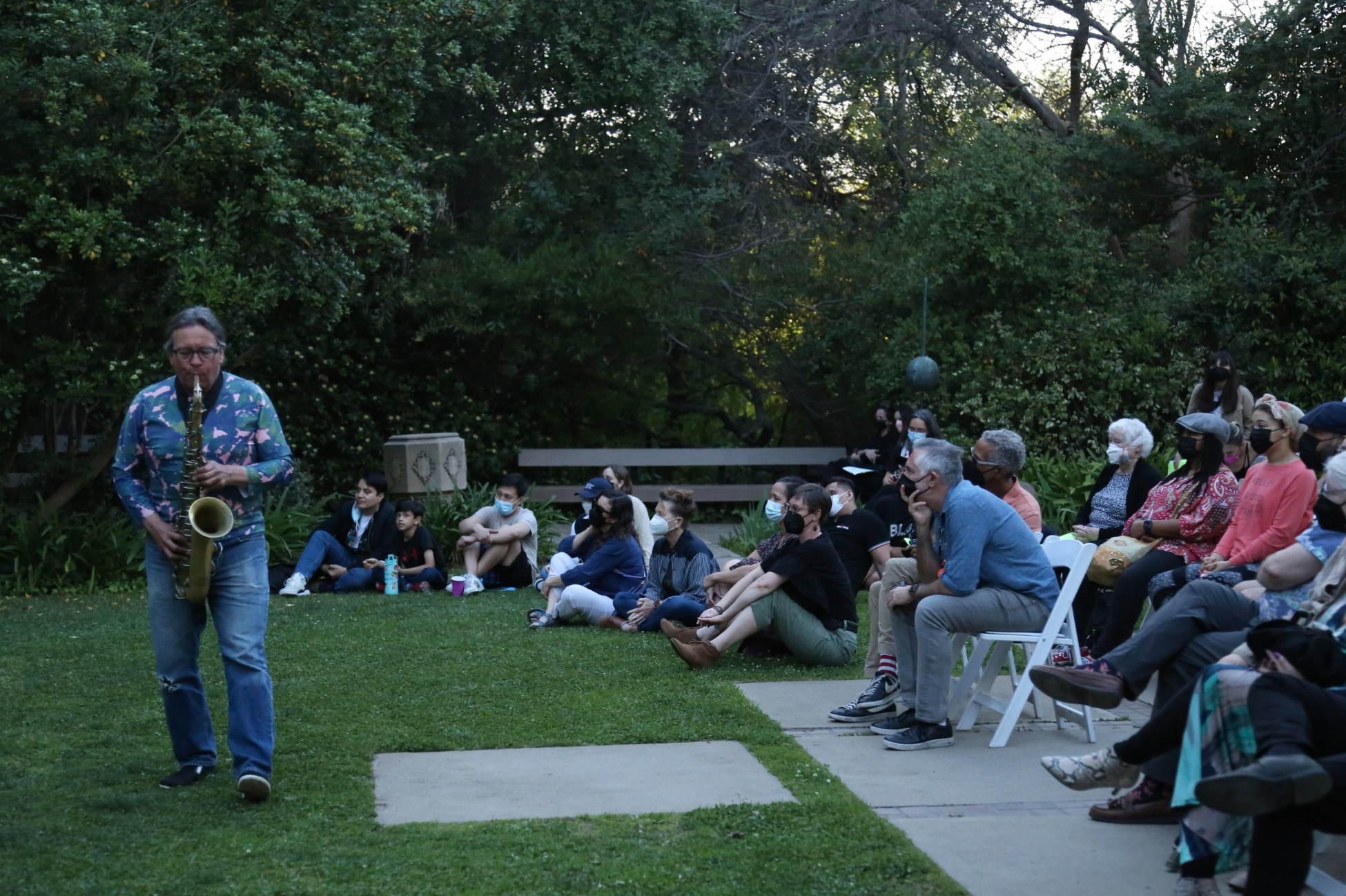
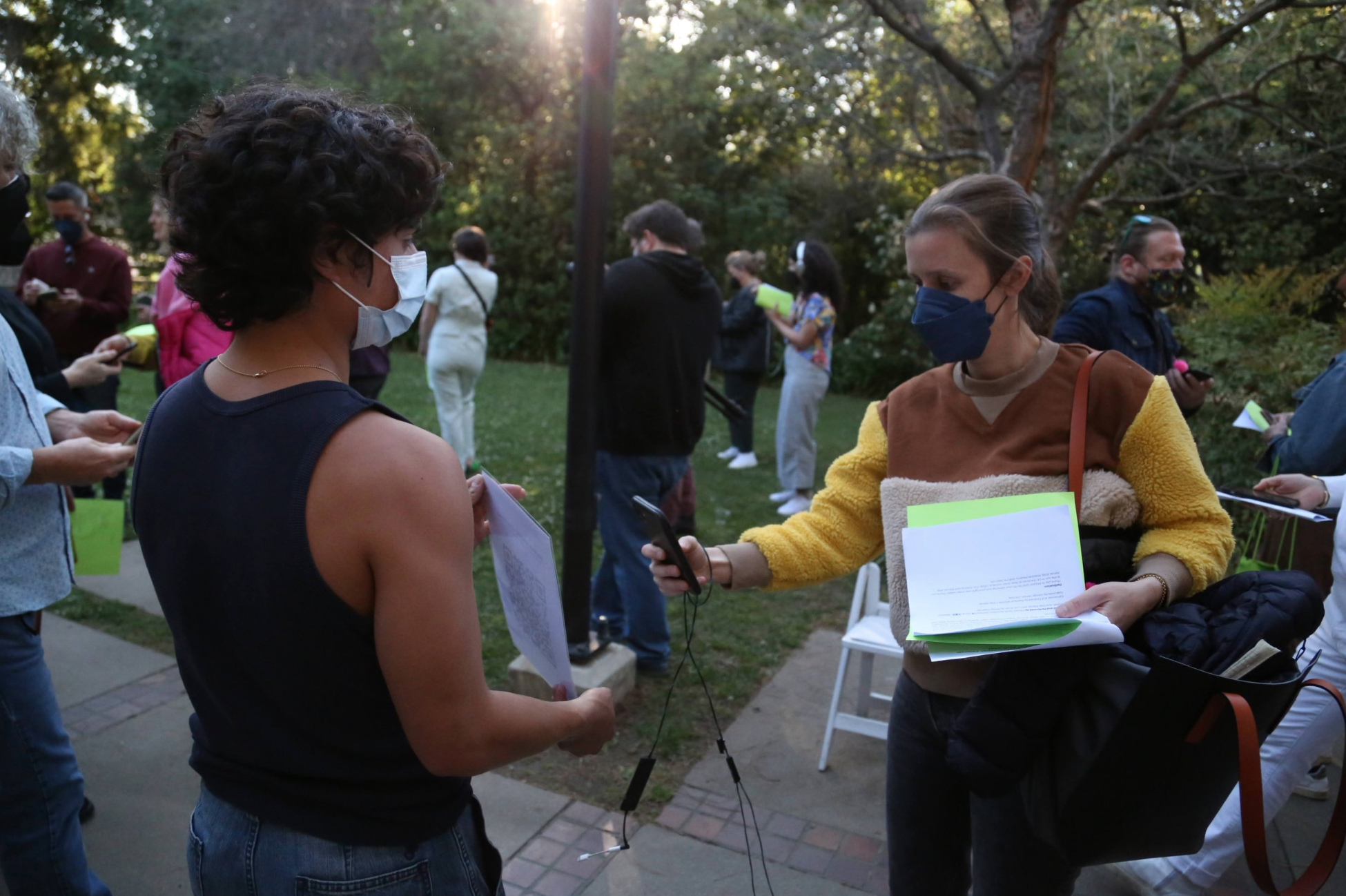
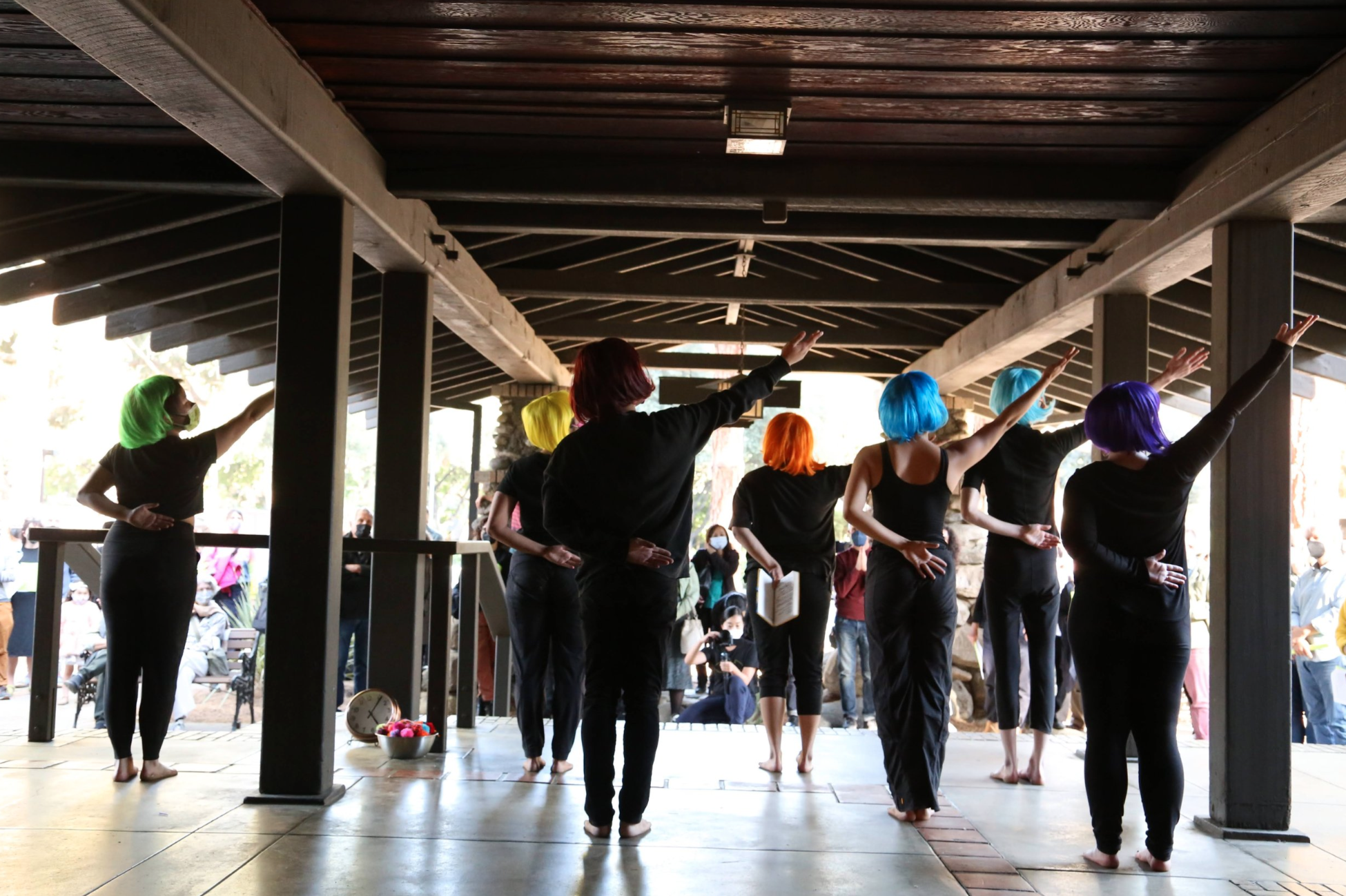

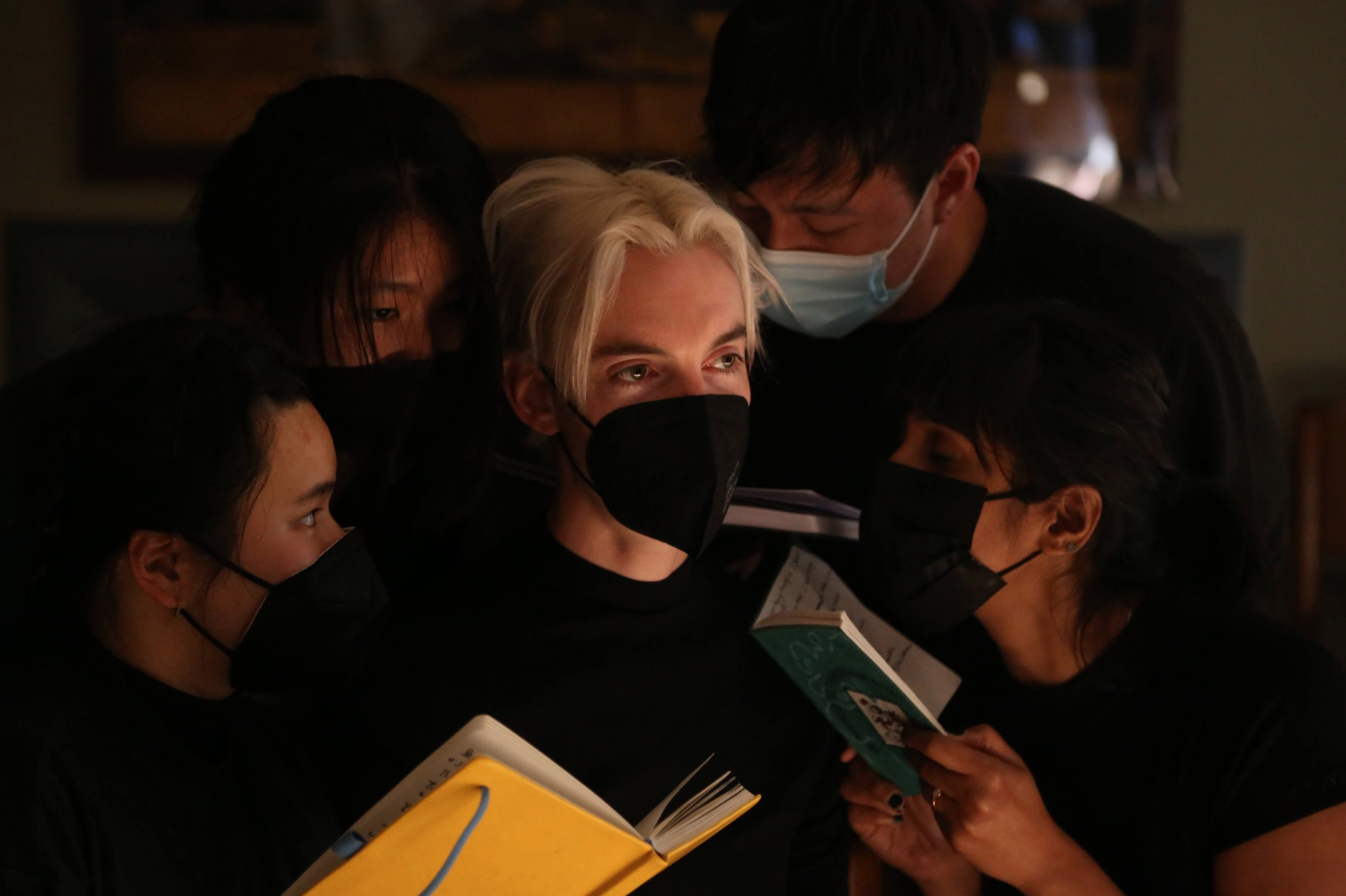
Photos Curtesy of homeLA
Course:
HD 341:
Communication for Empowerment
Professor:
Norma Castellanos, MA
Books:
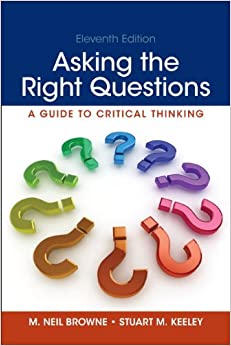

- Browne, M.Neal; Keely, Stuart (2011). Asking the Right Questions. 11th Edition.
- McKay, Matthew;
Davis, Martha; Fanning, Patrick (2009). Messages: The Communication Skills
Book. 4rd Edition.
Course Description:
This course will empower students to make connections with other people. Five areas of communication will be addressed; self-awareness; active listening for meaning; fluent, concise and organized writing; active, appropriate engagement within a group; and articulate, organized verbal communication and presentation of self. In addition, students will develop and strengthen their ability to think critically; integrating the subjective and objective, in all areas of communication. They will examine the impact of their values and biases on communication across cultural, racial, class and gender lines.
Signature Assignment:
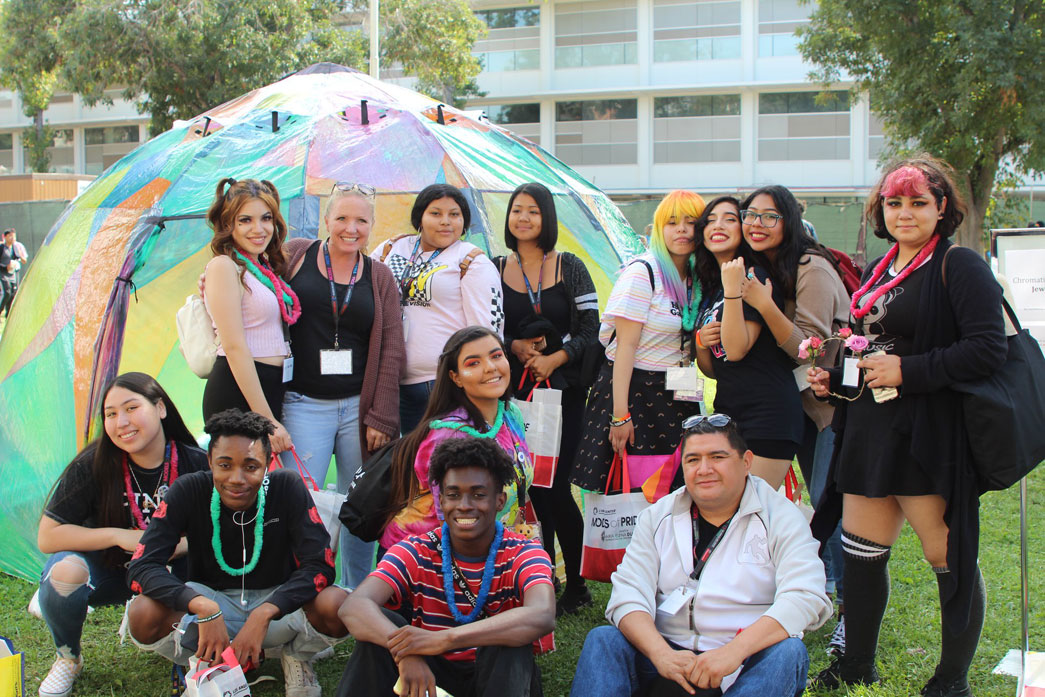
The Creation of a Resilient Identity and Self-Esteem—Models
of Pride Conference and LGBTQIA+ Youth in the 1990s
Abstract:
This study explored the impact of the Models of Pride conference on the self-esteem of LGBTQIA+ adults who attended the event during their teenage years. Five participants aged 33 to 42 were surveyed, reporting their self-esteem before and after attending the conference and its influence on their lives. The results showed that all participants experienced a significant increase in self-esteem, attributing the conference's positive influence to the sense of community, support, and empowerment they encountered. While the sample size is small, the findings suggest that interventions like the Models of Pride conference can have a lasting and positive impact on the self-esteem of LGBTQIA+ youth. Further research with larger sample sizes is needed to generalize these findings, but the results emphasize the importance of inclusive, affirming, and supportive environments for LGBTQIA+ individuals during their formative years.
Course:
ASJ 300:
A History of Social Justice Reform
Professor:
Chad Horton, MA
Books:
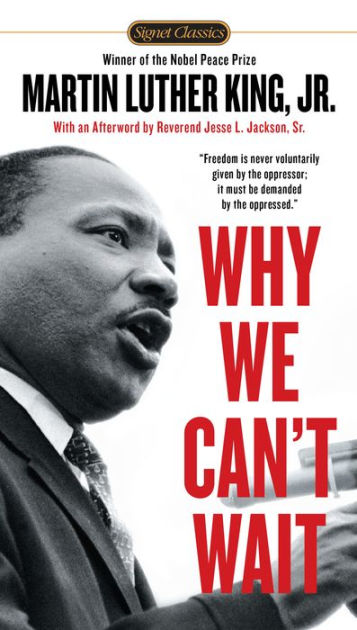


- King Jr.,
M.L. (2000) Why We Can’t Wait.
- Sensoy, Ö
and DiAngelo,
R. (2017).
Is Everyone Really Equal (2nd Edition).
- Capeheart, L and Milovanovic, D. (2007). Social Justice: Theories, Issues, and Movements.
Course Description:
A History of Social Justice Reform provides a foundational framework to explore the origins of social justice theory, the research surrounding social justice movements, and the historic distribution of social resources that result in injustice and disparity. Course content immerses students in the defining tenants of social justice and its movements, the dimension and scope of the movements, the criterion required for action, the salience of group and individual motivation towards justice, the capacity to form justice judgments, the cognitive and behavioral reactions to injustice and the cross-cultural generalizability of justice considerations.
Signature Assignment:

Abstract:
This paper explores the impact of anti-racism adult education programs, particularly those rooted in progressive faith theology, in addressing racial injustice and fostering social change. By examining the experiences of Unitarian Universalist congregants who participated in the Jubilee III workshop, the paper highlights the value of dialogical learning experiences in questioning inequalities, building critical thinking skills, and encouraging action. Furthermore, the paper emphasizes the importance of dismantling white supremacy culture within religious institutions and society at large. The use of resources, such as the Black UU Survival Guide, illustrates the ongoing commitment of progressive faith communities to anti-racism education and the creation of a more equitable and inclusive world.
Church History:
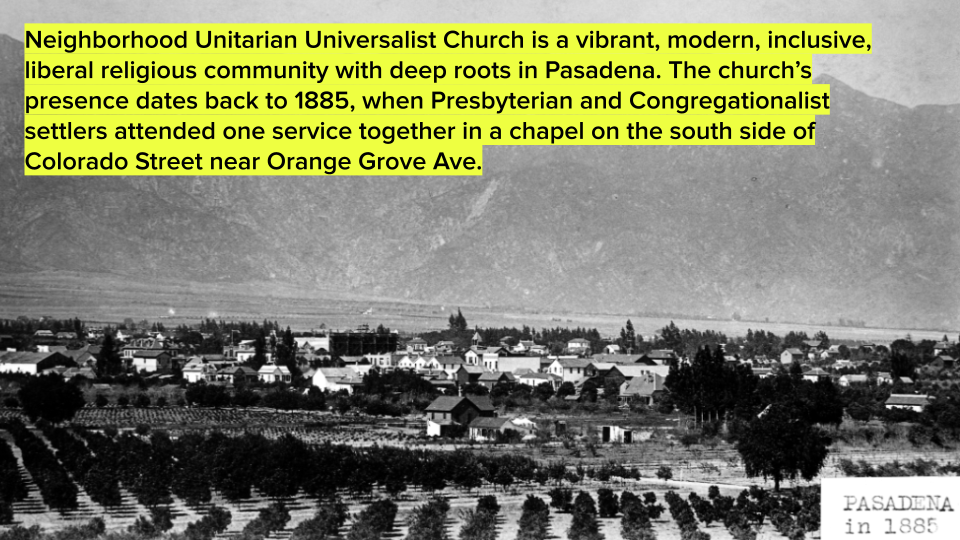



designed by luis sierra campos

